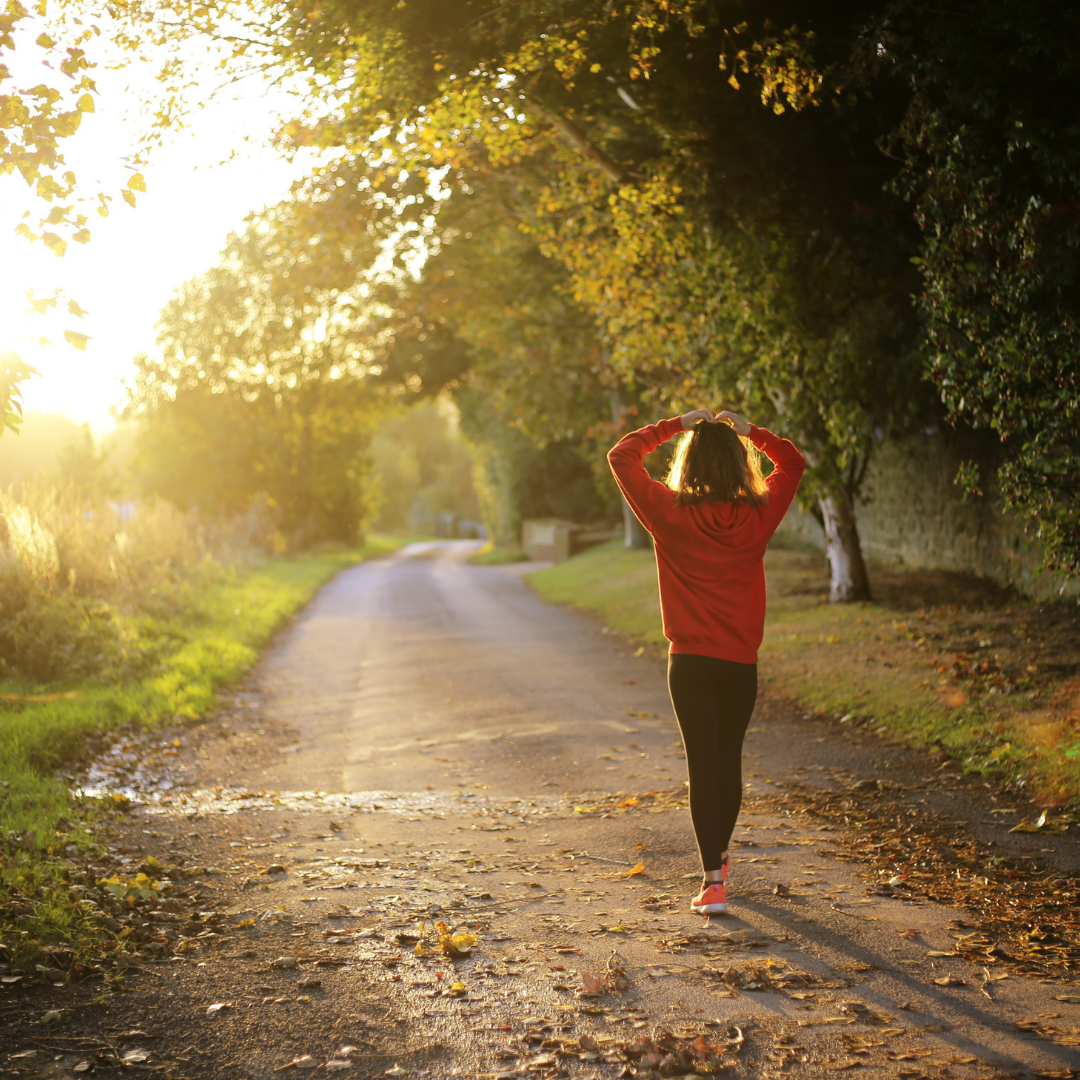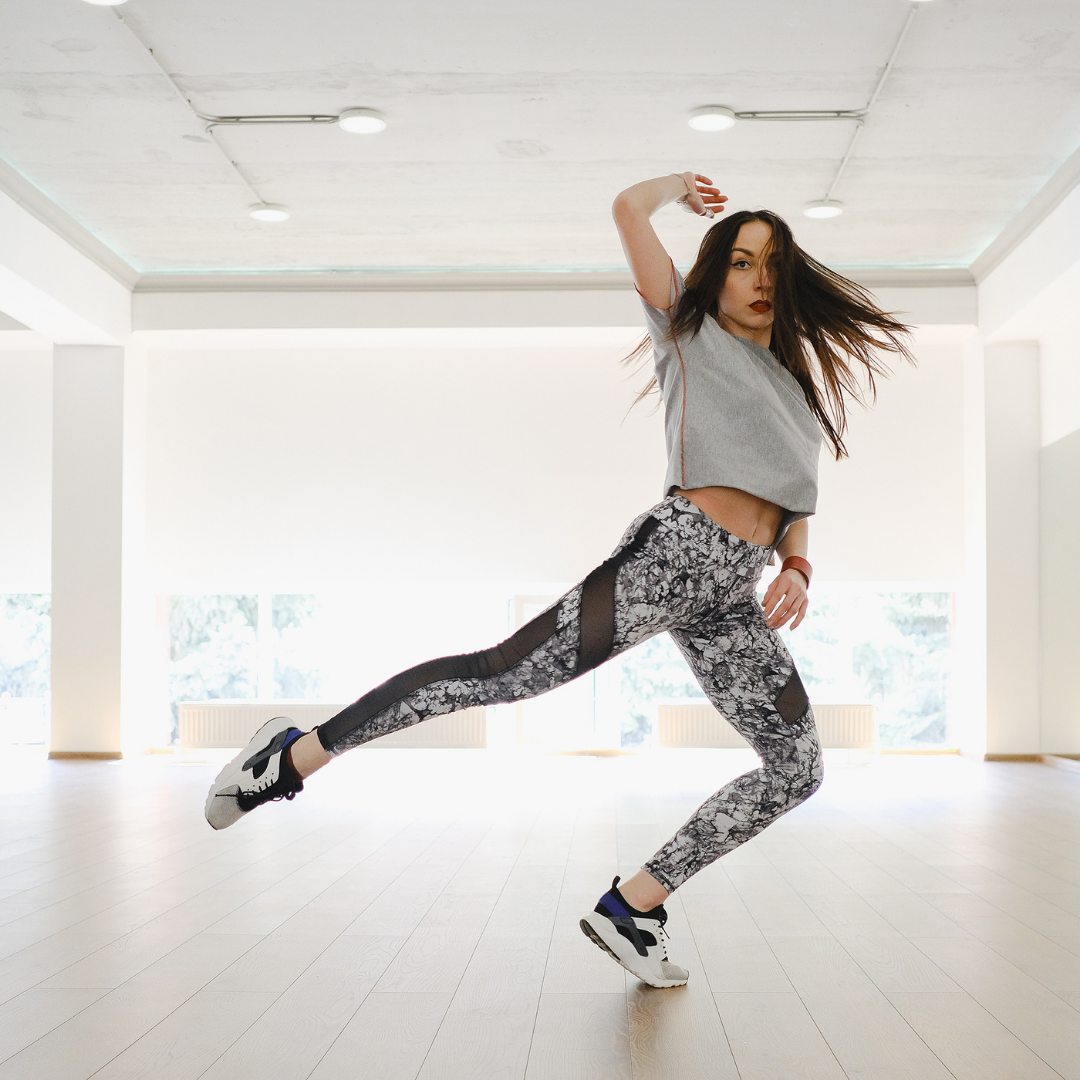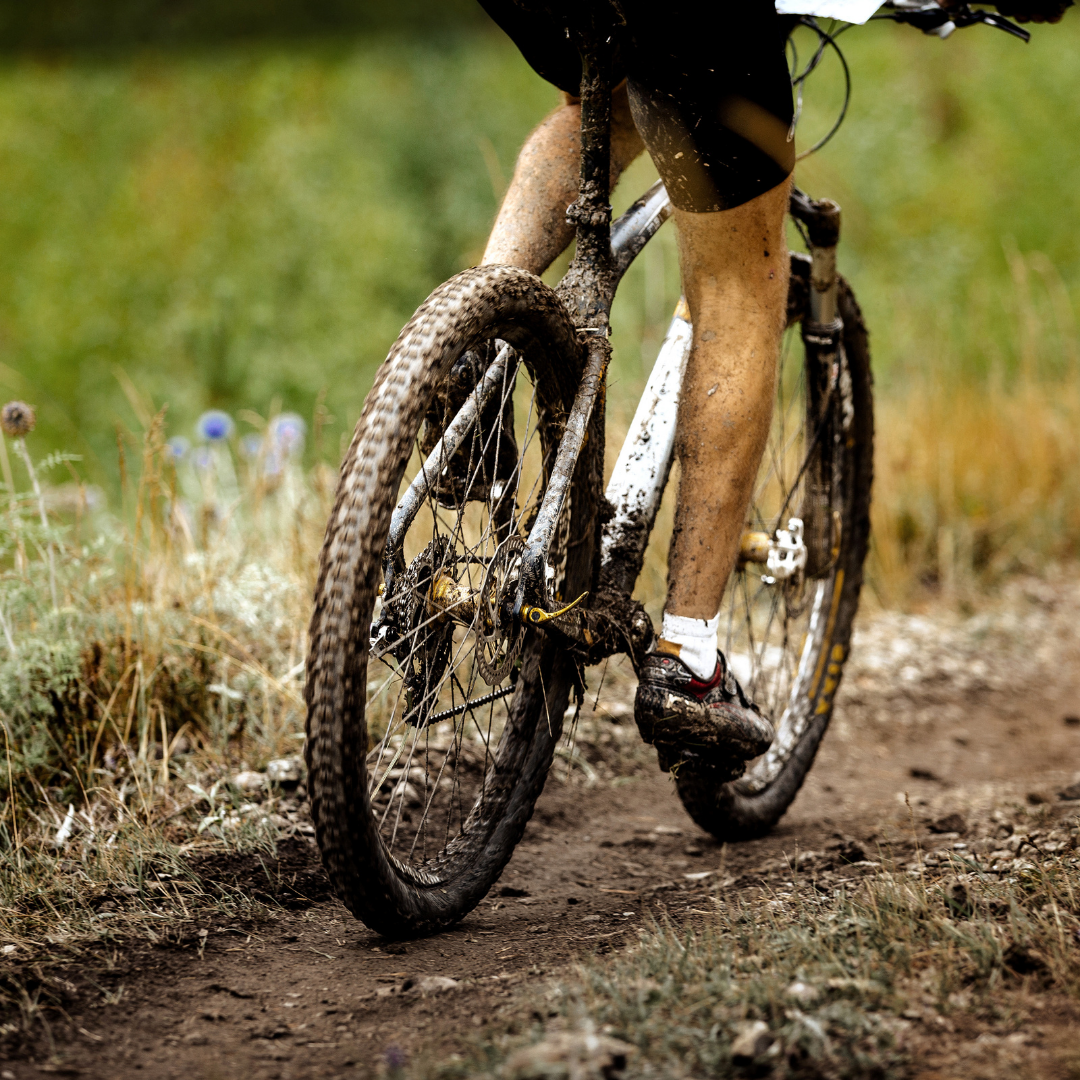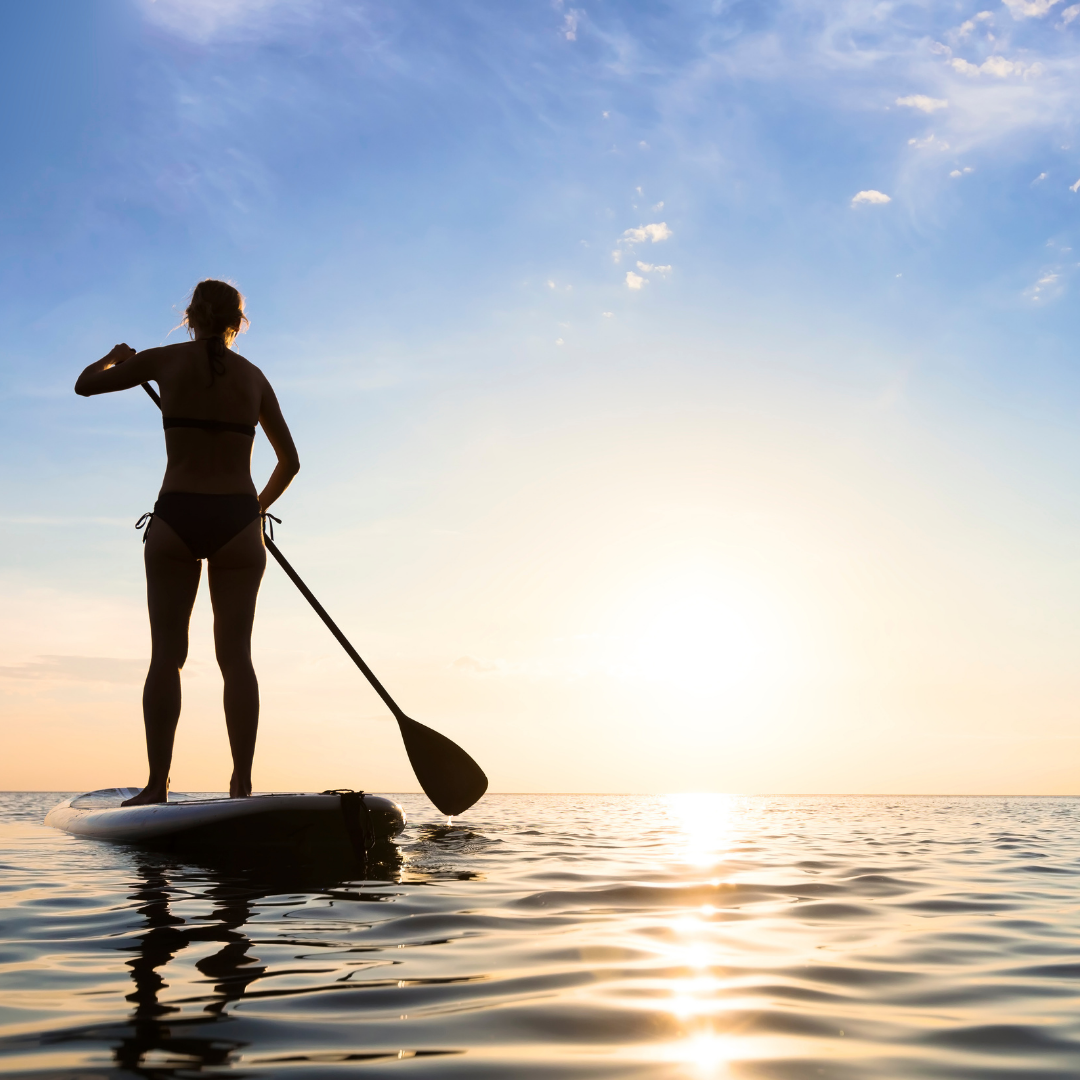Here’s How Physical Activity Can Help Ease Anxiety
I am the first to admit that I don’t really like moving. If I had a choice, I would prefer to sit over pretty much anything else. Napping is my favorite.
And, even after realizing all that, I know that I feel more balanced and at ease after I move my body in some way. And that sitting with my thoughts sometimes just feeds my anxiety and makes things a bit worse.
I also have friends that are constantly exercising, which can lead to physical pain, injury or an over stimulated mind. These friends tend to avoid their anxiety by working out all the time.
So how do we find the balance? And why is moving so important anyway? Today I’m sharing the importance of moving your body and how to find the right balance so that you feel confident to better manage your anxiety using your own movement routine.
Why Moving Is Important to Reduce Anxiety
I’m sure you already know that physical exercise is good for your body and that it can help with your overall mental health. But it can also be an important tool to help you better manage your anxiety as well.
When you struggle with chronic anxiety, your brain believes that you are in constant threat mode, because it can’t tell the difference between an immediate threat or a perceived threat. Cortisol, adrenaline and other stress hormones are released into your bloodstream to prepare your body to fight, flight, freeze or faint. And, since you aren’t actually in immediate danger, you don’t burn off the excess amount of these hormones by running or fighting, so they end up building up in your body. Over time these hormones become “stuck stress” that creates chronic tension and pain in your muscles, painful headaches, general muscle cramps, stomachaches, and heartburn.
Moving your body is an extremely effective way to burn off these excess stress hormones. As a bonus, when you are engaged in physical activity, important anti-anxiety neurochemicals such as endorphins (also known as the feel-good neurotransmitters), serotonin, and gamma aminobutyric acid (GABA) are released into your brain. All of this helps to relax your muscles and relieve tension in your body. And as the body starts to feel better, the mind will start to relax and feel better as well.
Exercise also helps to move your awareness away from your overthinking mind and back to the body in the present moment. When you are anxious, the amygdala in your brain runs the show, which means you are more likely to react to stressful situations based on habits and emotions. Since exercise brings your awareness to the present moment, it turns on your prefrontal cortex (also known as the executive functions of the brain), so that you’re better able to choose how you want to react to a stressful situation instead of having that stress choose for you. And the more you exercise, the more you’ll build up the resources you need to handle difficult anxious emotions in the future.
Ayurveda and Anxiety
Ayurveda, India’s 5,000-year-old traditional system of medicine, says that everything on the planet is composed of five elements, or basic principles, that represent the primary components of all living things. These five elements are ether (or space), air, fire, water and earth. Each of the elements then has its own set of qualities that help describe the energies of the element, and Ayurveda teaches 20 qualities listed as 10 pairs of opposites.
It’s important to know the opposite quality because Ayurveda is based on the principles of like increases like and opposites balance. These two Ayurvedic laws have you first identify which quality is causing you to feel agitated. Then, choose the opposite quality in order to bring your entire system back into balance.
From an Ayurvedic perspective, anxiety is when we experience too much space and air, which have light, mobile and dry qualities. When there is too much lightness and movement in the mind your thoughts race, you worry, you can’t focus and you might find yourself confused. Your nervous system also shifts into overdrive, which pushes your energy up to your mind and out of your body.
Practicing the opposite qualities, such as slow, steady and downward focused repetitive moments, will bring your system back into balance. These types of movements will calm your nervous system, relax your mind and bring your awareness back into your body in order to stabilize your energy.
Ayurveda teaches that the body, mind and spirit must exist in harmony for you to be truly healthy and happy. And this harmony is developed by learning how to be in balance with nature through simple guidelines and practices. And one of those is to connect to nature on a daily basis. Being in nature allows you to shift your attention beyond just your overthinking mind and to use all your senses to experience the world around you. Instead of moving in a gym or your basement, consider taking your physical activity outside in order to reap all the benefits that nature has to offer.
Suggested Physical Activities
There is no one perfect physical activity that will help reduce anxiety for everyone. Since anxiety and our own life experiences are so unique, the perfect exercise for you will be different, shift and change in any given moment of your day, week, year or lifetime. The key is to first notice how you are feeling in any given moment. Then, you can decide what physical activity might be the best option based on that information.
So exactly how much exercise do you need to help reduce your anxiety? Although it’s hard to determine the “perfect amount”, a meta-analysis in the journal Anxiety-Depression found that people who struggle with anxiety and reported a high-level of physical activity were better protected against developing anxiety symptoms than those who reported low physical activity.
So basically, the more exercise the better when it comes to managing your anxiety.
Below are a few suggestions to help you get started. Remember to choose something that lights you up! And even consider finding someone to work out with - it’s always nice to have an accountability partner to get you moving and to make connections with during your day.
Walking. This is my GO TO way of exercise - I have built it into my daily morning routine. I try to walk in nature almost every morning and recently I’ve found a friend to walk with as well, which keeps me accountable on those days I don’t feel like getting out of bed. Walking clears your mind and gently releases tension from your body. It’s one of the more simple ways you can move to reduce your anxiety.
Yoga. Yoga is the practice of staying present using the breath to connect the body and mind. There is no other activity, in my opinion, that works better at bringing your entire system back into balance. There are so many options when starting a yoga practice. You can find a local studio or even search basic beginner videos on YouTube. If you are interested in learning more, check out my studio, Serenity Yoga, to take a class with us in person or online!
Dancing. There is nothing quite like turning on your favorite song and letting your body move however it wants to the rhythm of the music. Your body can express itself in ways that you may not be able to verbalize, which can be extremely therapeutic. And if you are embarrassed to dance, try shutting the shades and let the music wash over you. Your body will know what to do.
Other suggestions include running, swimming, hiking, biking, gardening, canoeing, or paddle boarding. All of these options can include slow, steady and rhythmic movements that allow you to slow down the mind and connect to the present moment.
Which brings me to my final point. Regardless of how you move, it’s important to move mindfully in order to keep your awareness in the present moment. You’ll get all the physical benefits that can help to reduce anxiety if you go for a run while your mind is thinking about other things. However, the impact of moving will be so much more effective to manage your anxiety if you practice staying aware of your body and breath as you move.
So there you have it. You now know the importance of moving your body in order to better manage your anxiety. Truly turning inward to understand how you are feeling will give you the confidence you need to choose the right physical exercise that will bring you back into balance.







